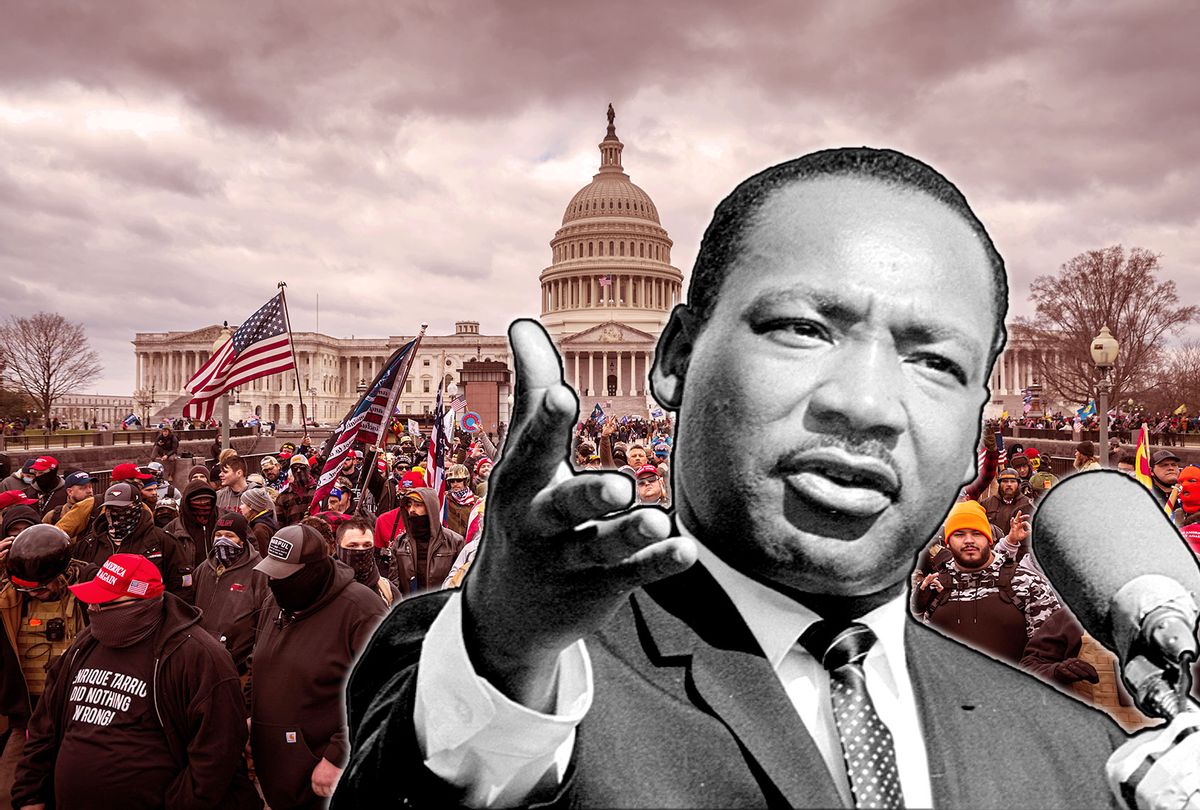A few weeks before his death in 1968, Dr. Martin Luther King, Jr. spoke about the “other America” to a union group in New York. In his remarks, he condemned the structural nature of poverty, saying “this country has socialism for the rich, rugged individualism for the poor.” He was referring to the societal and systemic factors that contribute to the perpetuation of poverty, like economic inequity, discrimination and inadequate social safety nets. It was this profound frustration that compelled him to call for a racially unified movement to fight against poverty in America, a country filled with so much “concentrated opulence.”
The idea of launching a multiracial coalition to demand economic opportunity for all in America has long been a threat to the wealthiest class. Yet now is precisely the time to resurrect that effort, especially given the exploitation of working-class whites for political gain in this past election cycle, and the structuralized poverty that has trapped millions of Americans of all races in generations of poverty.
On the day we commemorate Dr. King’s life and legacy, we rarely confront and discuss his most stinging criticism of America’s grossest injustice: how could a country of such great wealth have so many of its citizens trapped in vicious cycles of poverty? In fact, he spoke unrelentingly about the interlocking systems of inequity: inadequate, substandard housing, inferior public schools, unsustainable low-wage jobs and lack of access to quality health care.
Dr. King’s steadfast commitment to economic justice prompted his pivotal relationship with President Lyndon B. Johnson and the subsequent passage of the most significant civil rights legislation of the 20th century, as part of Johnson’s newly declared War on Poverty. It also inspired contemporaries like Robert Sargent “Sarge” Shriver, a fellow servant leader and civil rights crusader, and the namesake of the Shriver Center on Poverty Law and the Sargent Shriver Peace Institute.
Shriver played a pivotal role in the War on Poverty. He founded the National Clearinghouse for Legal Services, a national law firm for people with low income that eventually became the Shriver Center on Poverty Law. As founder and director of the Office of Economic Opportunity, he also launched several ground-breaking anti-poverty programs including Community Action, Job Corps, Volunteers in Service to America (VISTA) and Head Start. Shriver believed that as Americans, we must “be responsible for one another and responsible to one another.”
Like Dr. King, Shriver was a true servant leader, someone whose leadership was focused on the growth and well-being of the communities to which he belonged. He believed that “everybody can be great because everybody can serve,” and compelled people to serve others in whatever way they could. He explained, “in the end, it will be the servants who save us all.”
We need your help to stay independent
Today, the War on Poverty has become a war on the poor. Instead of modeling servant leadership, President Trump seeks to relieve our country of its fundamental responsibility to guarantee the safety and welfare of all its citizens, regardless of race, ethnicity, religion or political affiliation. He and his political allies continue to push the dangerously antiquated “bootstraps” narrative that anyone in America can succeed merely with hard work and grit, while ignoring the systemic barriers erected specifically to marginalize people of color.
Most egregiously, they seek to conceal an incontrovertible truth: roughly 38 million Americans currently live at the poverty line, 11 million of whom are children. 49 million more people are living slightly above the poverty line but teeter on the brink of financial ruin. These statistics alone should be a disgrace for a country as wealthy as America. Yet many of the cuts proposed by the incoming Administration directly target our already fragile social safety net, including housing assistance, Medicaid and the Supplemental Nutrition Assistance Program (SNAP). And sadly, the programs under attack are the ones that have bolstered many of the working-class people to whom he appealed most directly.
If we are truly committed to eradicating poverty in America, we must carefully revisit the philosophy of Dr. King, Sarge Shriver and many other notable champions of economic justice. We must uplift the notion of a multiracial coalition, one that is neither constrained nor manipulated by partisan ideologues. Reverend Dr. William Barber II is a renowned anti-poverty crusader and co-chair of the new Poor People’s Campaign: A National Call for Moral Revival, which he relaunched in 2018. He has continued Dr. King’s legacy in building such a coalition that address the intersectionality of systemic racism, poverty, environmental degradation and religious nationalism.
In a curious coincidence, the inauguration of President Trump falls on the day we honor the legacy of our country’s most beloved civil rights leader, but their ideologies could not be more opposed. Dr. King audaciously challenged the government to eradicate poverty by providing every American a guaranteed, middle-class income. Conversely, in his first term, President Trump proposed significantly deeper cuts to programs for low- and moderate-income people than any other president ever has, including Ronald Reagan. And he has already indicated that he will resume that course in his second term.
Ultimately, any effort to make this country “great” does not start by widening the chasm between rich and poor. It does not involve denigrating our most vulnerable citizens or using racial fearmongering to divide and manipulate poor people. To the contrary, to make this country great is to transcend partisan dogma and focus directly on the dignity and well-being of those struggling most to make ends meet.
As Dr. King reminds us, “a great nation is a compassionate nation.” At its core, poverty in America is a policy choice. As long as America has yet to meet its obligations and responsibilities to its most economically disadvantaged citizens, it’s our job to demand better choices be made and to insist that we erase the persistent wrong of having “two Americas.”



Shares